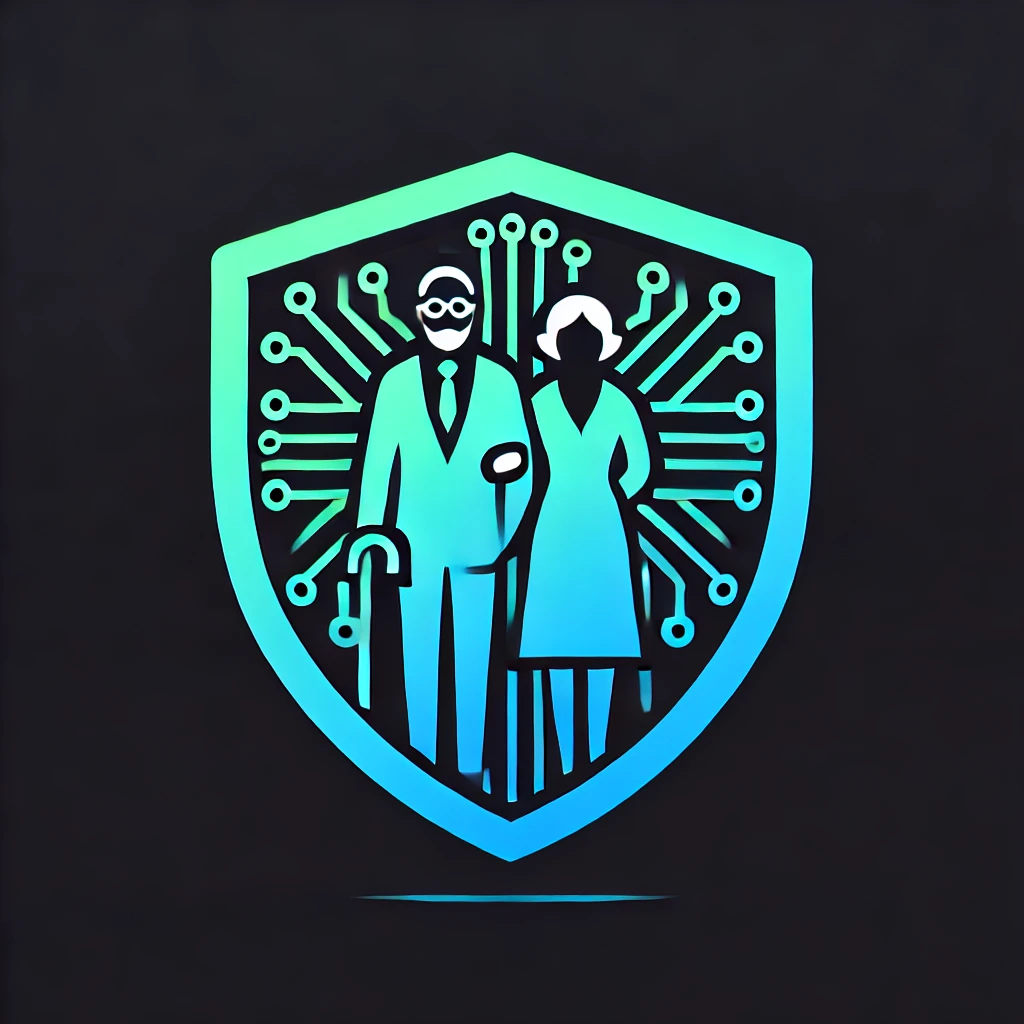The Importance of Staying Ahead
In today’s digital world, fraud is an ever-present danger, especially for seniors who may not be familiar with the evolving tactics of cybercriminals. Scammers continuously develop new schemes to exploit vulnerabilities, making it crucial to take preventative actions to safeguard personal and financial information. Rather than reacting to fraud after it happens, being proactive is the best defense.
Senior Web Warden is committed to educating, empowering, and protecting seniors by equipping them with the tools and knowledge needed to prevent online scams and fraud. This article outlines key preventative actions that individuals, families, and communities can take to reduce the risk of fraud before it occurs.
1. Strengthening Digital Security
One of the simplest yet most effective ways to prevent fraud is by strengthening digital security. Seniors should be aware of key cybersecurity practices, including:
- Using Strong Passwords: Create complex passwords with a mix of uppercase and lowercase letters, numbers, and symbols.
- Enabling Two-Factor Authentication (2FA): Adds an extra layer of security, requiring a code in addition to a password.
- Regularly Updating Software: Keeping devices and applications updated helps patch security vulnerabilities.
- Installing Antivirus Software: Protects against malware, ransomware, and phishing attempts.
Senior Web Warden’s Role:
Senior Web Warden conducts workshops and one-on-one training sessions to help seniors set up strong passwords, enable 2FA, and install essential security tools on their devices.
2. Recognizing and Avoiding Scams
Scammers often target seniors through phone calls, emails, and fake websites. Recognizing the signs of fraud is essential in preventing financial loss and identity theft.
Common Scams and How to Prevent Them:
- Phishing Emails: Avoid clicking on suspicious links and verify email senders before responding.
- Tech Support Scams: Never grant remote access to a computer unless it’s from a verified technician.
- Grandparent Scams: Verify the identity of any caller claiming to be a relative in distress.
- Investment Fraud: Research financial opportunities thoroughly before investing money.
Senior Web Warden’s Role:
We offer educational sessions at senior centers and libraries, where seniors learn how to spot scams and verify the authenticity of emails, calls, and online offers.
3. Securing Financial Transactions
Financial fraud is one of the most devastating forms of cybercrime. Taking preventative measures can significantly reduce the risk of becoming a victim.
Best Practices for Financial Security:
- Monitor Bank Statements: Regularly review financial transactions to detect unauthorized charges.
- Set Up Account Alerts: Receive notifications for large withdrawals or unusual activity.
- Use Secure Payment Methods: Avoid sending checks or money orders to unknown individuals.
- Beware of Charity Scams: Donate only to verified organizations with a proven track record.
Senior Web Warden’s Role:
Through our webinars and financial safety courses, we guide seniors on how to secure their bank accounts, avoid fraudulent transactions, and recognize charity scams.
4. Safe Social Media Practices
Social media is a valuable tool for staying connected but can also be a gateway for scammers. Seniors should be mindful of how they share personal information online.
Preventative Social Media Actions:
- Adjust Privacy Settings: Limit who can view personal posts and profile information.
- Avoid Accepting Unknown Friend Requests: Scammers often pose as friendly strangers.
- Be Cautious of Too-Good-To-Be-True Offers: Scammers promote fake giveaways and deals.
- Watch Out for Impersonation Scams: Criminals may pose as friends or relatives to request money.
Senior Web Warden’s Role:
We provide social media safety workshops to teach seniors how to protect their accounts and identify fraudulent social media activities.
5. Reporting Suspicious Activity
If seniors encounter fraud attempts, it is critical that they report the activity to the proper authorities. Timely reporting can prevent further victimization and help law enforcement take action against scammers.
Where to Report Fraud:
- Federal Trade Commission (FTC): For consumer fraud complaints.
- Local Law Enforcement: If financial loss has occurred.
- Banks and Financial Institutions: To freeze accounts and dispute fraudulent transactions.
- Senior Web Warden: We assist in guiding seniors on the correct steps to take when reporting scams.
Senior Web Warden’s Role:
We educate seniors on their rights and how to report fraud through our community awareness programs and advocacy efforts.
Final Thoughts: Take Action Now!
Preventing fraud requires a proactive approach. By strengthening digital security, recognizing scams, securing financial transactions, practicing safe social media habits, and reporting suspicious activity, seniors can confidently navigate the digital world without fear.
Senior Web Warden is here to help. Through our educational programs, senior center workshops, and student-led training initiatives, we empower older adults to protect themselves from fraud.
Take action today! Join one of our sessions, attend a webinar, or invite Senior Web Warden to your community center to learn how to stay safe online.
For more information, visit our website and become part of a movement dedicated to protecting seniors from cyber threats.


Leave a Reply